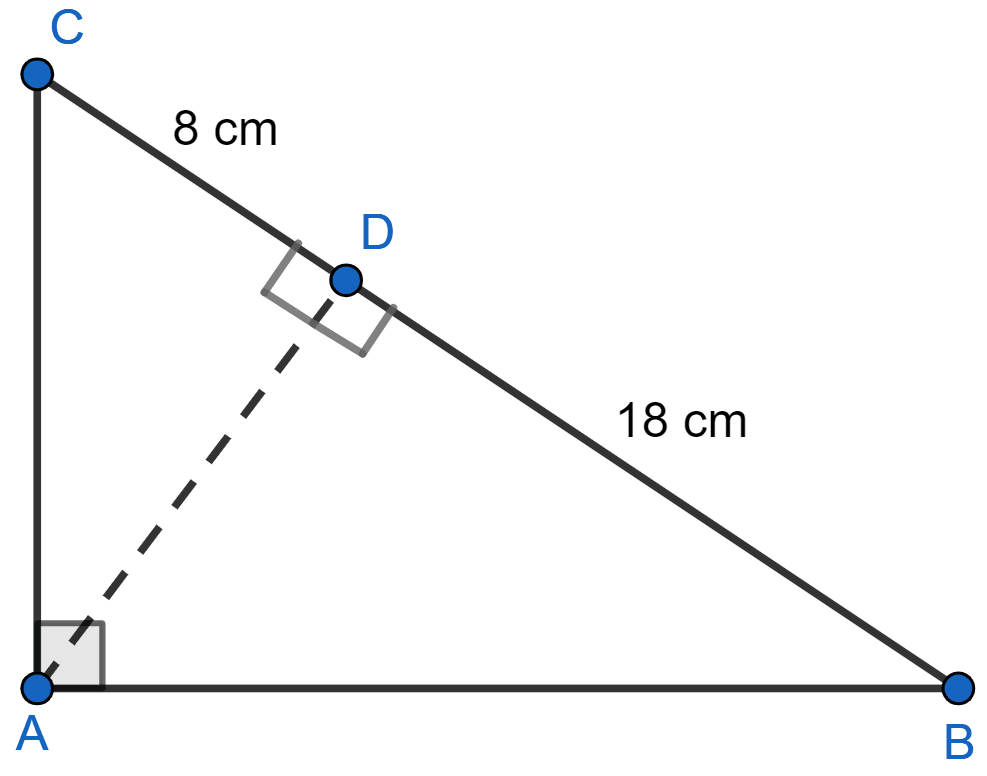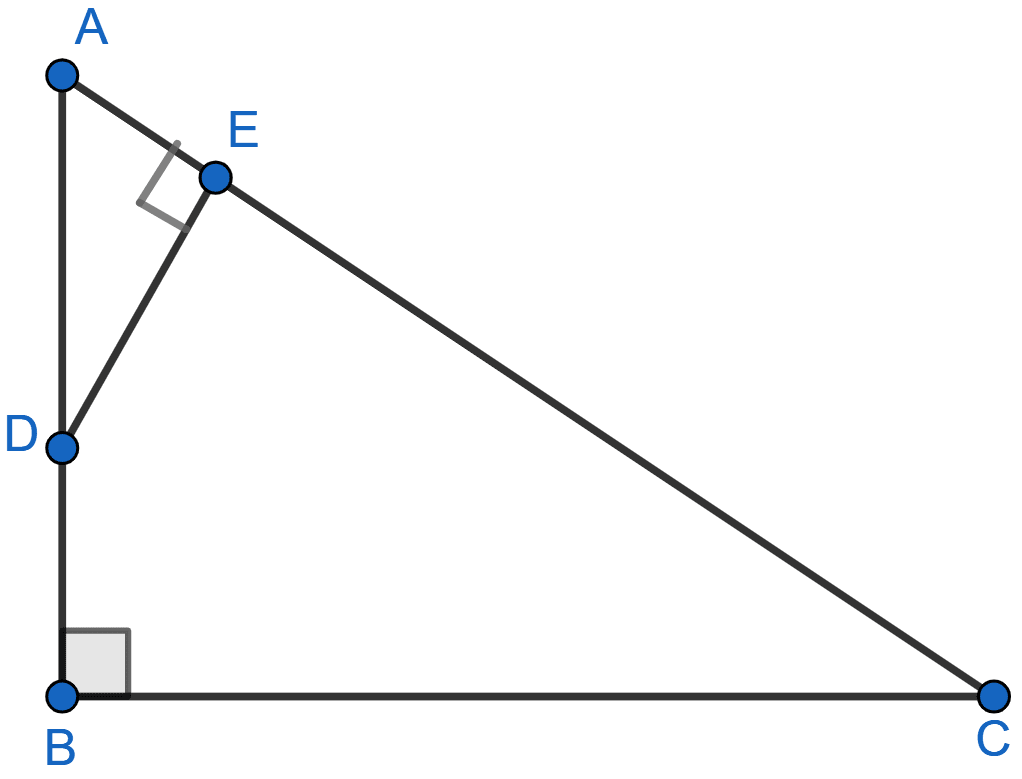Mathematics
In the given figure, ABC is a right angled triangle with ∠BAC = 90°.
(i) Prove that : △ADB ~ △CDA.
(ii) If BD = 18 cm and CD = 8 cm, find AD.
(iii) Find the ratio of the area of △ADB is to area of △CDA.

Similarity
20 Likes
Answer
(i) Let ∠CAD = x.
So, ∠DAB = 90° - x.
In △ABD,
⇒ ∠DAB + ∠ADB + ∠ABD = 180° [By angle sum property]
⇒ 90° - x + 90° + ∠ABD = 180°
⇒ 180° - x + ∠ABD = 180°
⇒ ∠ABD = x + 180° - 180°
⇒ ∠ABD = x.
In △ADB and △CDA,
⇒ ∠CAD = ∠ABD (Both = x)
⇒ ∠CDA = ∠ADB (Both = 90°)
∴ △ADB ~ △CDA [By AA]
Hence, proved that △ADB ~ △CDA.
(ii) Since, △ADB ~ △CDA and corresponding sides of similar triangles are proportional to each other.
⇒ AD2 = BD × CD
⇒ AD2 = 18 × 8
⇒ AD2 = 144
⇒ AD = = 12 cm.
Hence, AD = 12 cm.
(iii) We know that,
Ratio of areas of two similar triangles is same as the square of the ratio between their corresponding sides.
Hence, ratio of the area of △ADB to area of △CDA = 9 : 4.
Answered By
7 Likes
Related Questions
In △ABC, AP : PB = 2 : 3. PO is parallel to BC and is extended to Q so that CQ is parallel to BA. Find :
(i) area △APO : area △ABC
(ii) area △APO : area △CQO.

In the given figure, ABC is a triangle with ∠EDB = ∠ACB. Prove that △ABC ~ △EBD. If BE = 6 cm, EC = 4 cm, BD = 5 cm and area of △BED = 9 cm2. Calculate the :
(i) length of AB
(ii) area of △ABC

ABC is a right angled triangle with ∠ABC = 90°. D is any point on AB and DE is perpendicular to AC. Prove that :
(i) △ADE ~ △ACB
(ii) If AC = 13 cm, BC = 5 cm and AE = 4 cm. Find DE and AD.
(iii) Find, area of △ADE : area of quadrilateral BCED.

Given : AB || DE and BC || EF. Prove that :
(i)
(ii) △DFG ~ △ACG.
